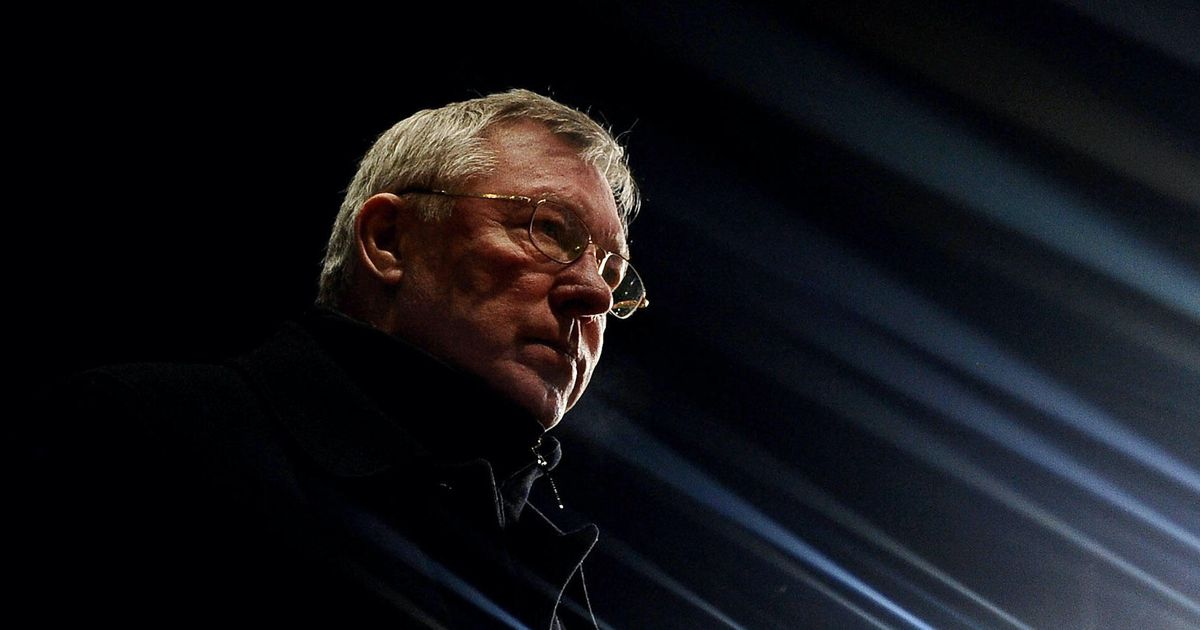
Laurence Griffiths/Getty Images
And there’s no room for the many (many) others who feuded with Ferguson, including Beckham, Roy Keane and Paul Ince. Yet there’s time for Ferguson to relitigate his decision to drop experienced goalkeeper Jim Leighton from the 1990 cup final replay, a decision he still defends even though the two men never spoke again.
Considering this is a film facing up to mortality, reflecting on how even the greatest are brought low one day, it’s a shame it has nothing to say about the final days of Ferguson’s career at United. When you’re at the top for so long, how do you know when it’s time to go? Ferguson won the Premier League yet again in his final season in 2013, but this isn’t a fly-on-the-wall documentary exploring that hard decision.
After a playing career as a tenacious goalscorer, Glasgow-born Ferguson began winning trophies almost as soon as he took charge of Scottish side Aberdeen. He briefly managed Scotland’s national team, but his finest days lay at Manchester United. Between 1986 and 2013, his Man Utd side won 38 trophies, including 13 Premier League titles.
Entertain your brain with the coolest news from streaming to superheroes, memes to video games.
CNET Culture
Yet it presents something of a rose-tinted view of Ferguson’s famously volatile career. The only footballing interviewees are former players Ryan Giggs, Eric Cantona and Gordon Strachan, plus Ferguson’s assistant Archie Knox. With Ferguson’s three sons, wife and brother all interviewed, there are more family members than footballers on screen. There’s barely a glimpse even of legendary figures like David Beckham, Wayne Rooney or Cristiano Ronaldo.
Mark Leech/Getty Images
The film ends with the 1999 UEFA Champions League Final, which Ferguson treasures as a crowning glory despite it occurring halfway through his 26-year career at United. From this glittering arena, the film flashes back to the shipyards. Even if you’re not a Manchester United fan, Sir Alex Ferguson: Never Give In is a celebration of a bygone age of football that counters the man’s well-documented abrasiveness with an intimate, reflective and even vulnerable portrait.
It’s a long way from the dirty, noisy shipyards of Glasgow to the world’s grandest sporting arenas. According to Alex Ferguson in the new documentary Never Give In, it was the working-class grit and values he learned there that helped him become one of the most successful managers in footballing history — but this film is revealed to be part of a complicated relationship with his own family.
Eric Cantona and Alex Ferguson, two famously fiery personalities who nonetheless brought out the best in each other.
But this isn’t a fact-filled retrospective studying the victories, the trophies and the bitter fights. Instead, editor Gregor Lynn uses evocative archive footage to peel back Ferguson’s life and times, from his working-class childhood to the biggest soccer stadiums. Looking back at a bygone age, the film throws up evocative details like vintage footage of a youthful Ferguson captured during a 1960s worker’s strike; the major Scots team which trained in a park (or on the beach, at least until the tide came in); and the bitter sectarian rivalries that soured the game. Ferguson is candid about his own responsibility for the drama in his personal life, from a falling-out with his father when the young player’s drinking nearly saw him quit the game and emigrate to Canada, or later when his consuming devotion to the game sidelined his own wife and children.
Ferguson himself admits his wife brought the kids up alone, adding “I’m no’ proud of that.” But there’s no suggestion that anybody would have done anything differently. Ultimately, the film is both a mea culpa from Ferguson and a reconciliation from his sons.
Sir Alex Ferguson: Never Give In is available to watch for free on Amazon Prime Video in the UK from May 29. It’s available to rent or buy internationally from May 31, and will stream on Paramount Plus for soccer fans in the US.
As the title suggests, Never Give In leans on the idea that Ferguson imbued young players with a sense of determination and responsibility. The son of a socialist mother, Ferguson was once a toolmaker and labor organizer in the Glasgow shipyards, and he often asked young players what their father or grandfather worked for. Giggs describes Ferguson as a father figure, ironic given Ferguson’s relationship with his own family. “He was never there,” says one of Ferguson’s sons. “He was always at work.”
New movies coming out in 2021: Netflix, Marvel and more
See all photos





